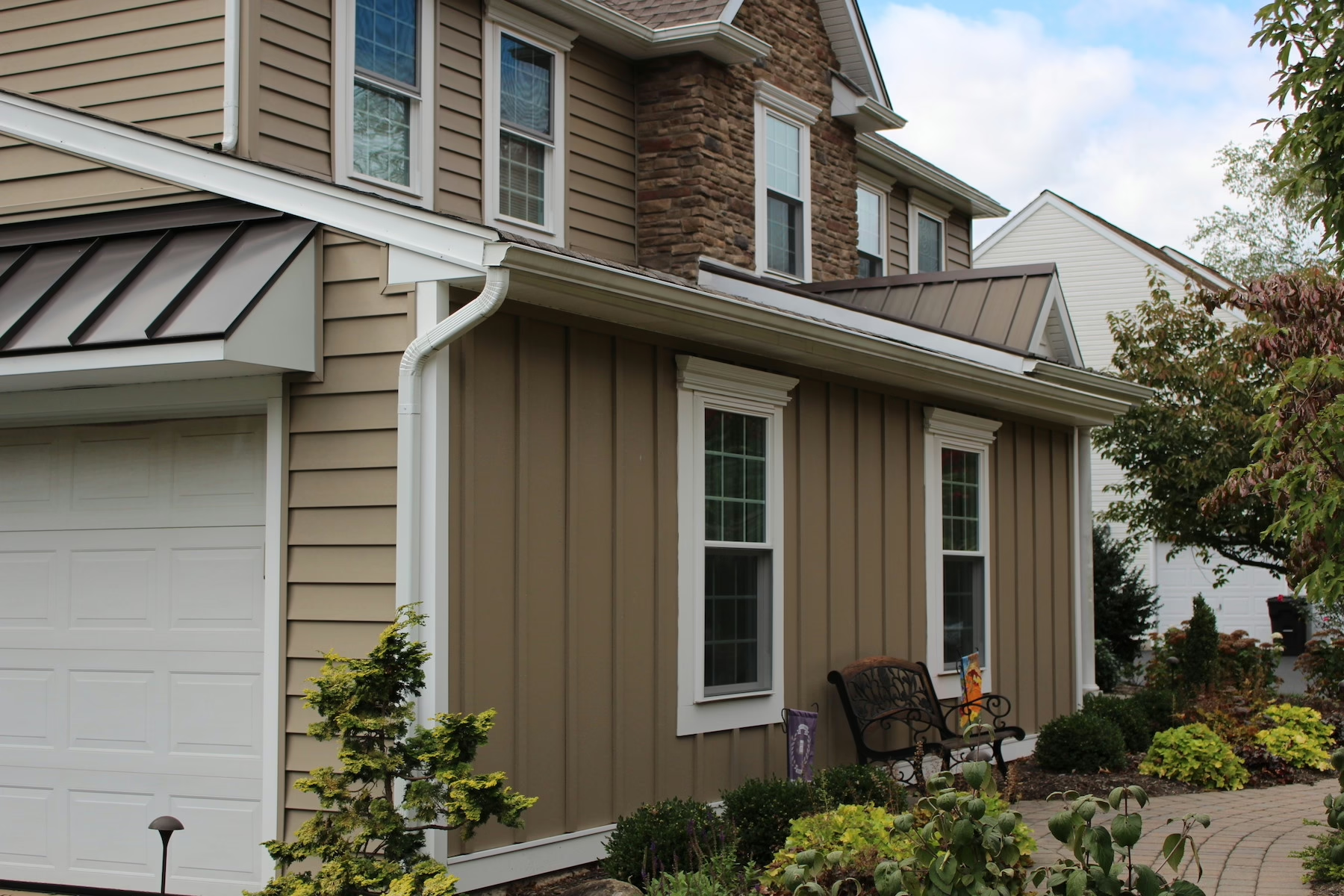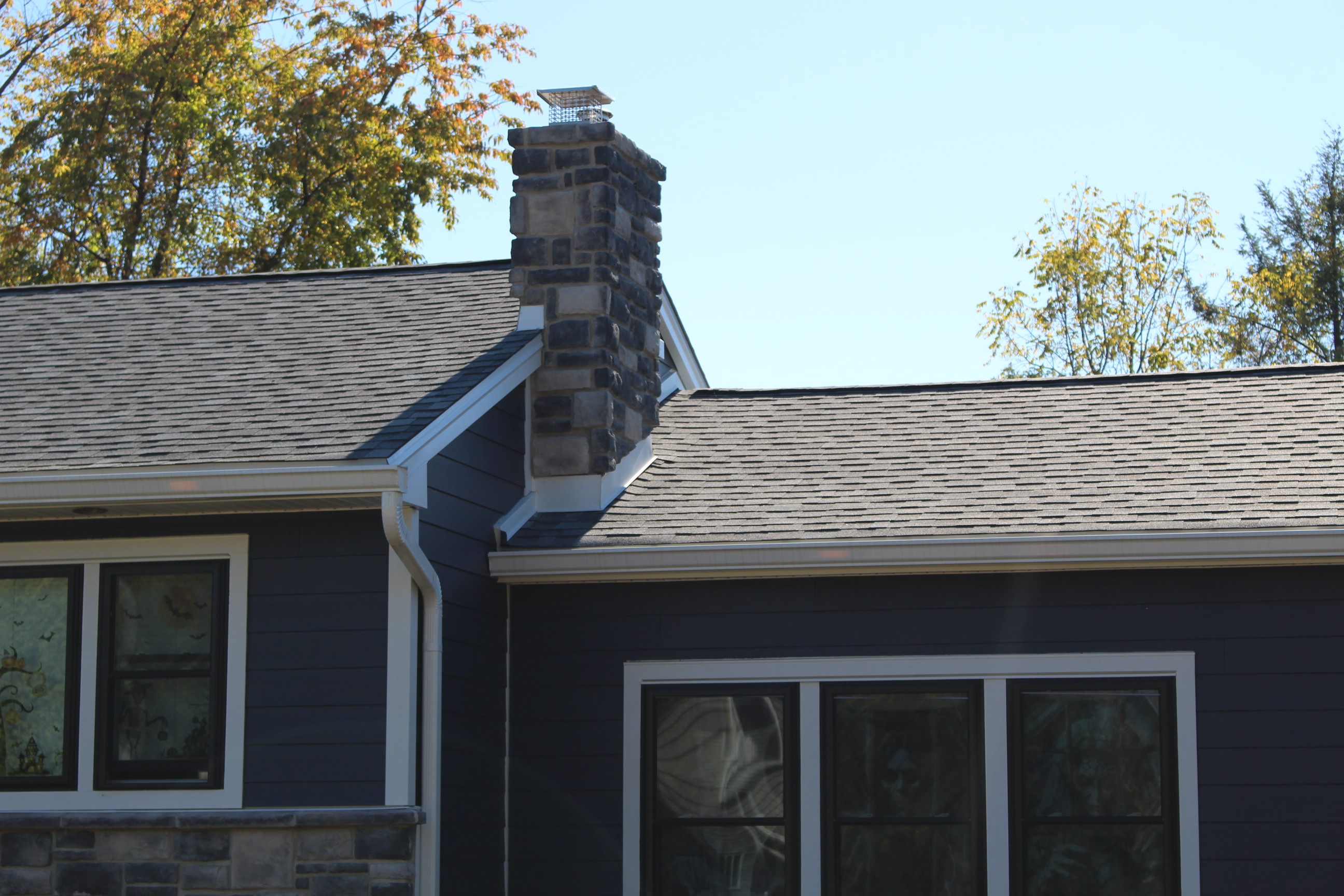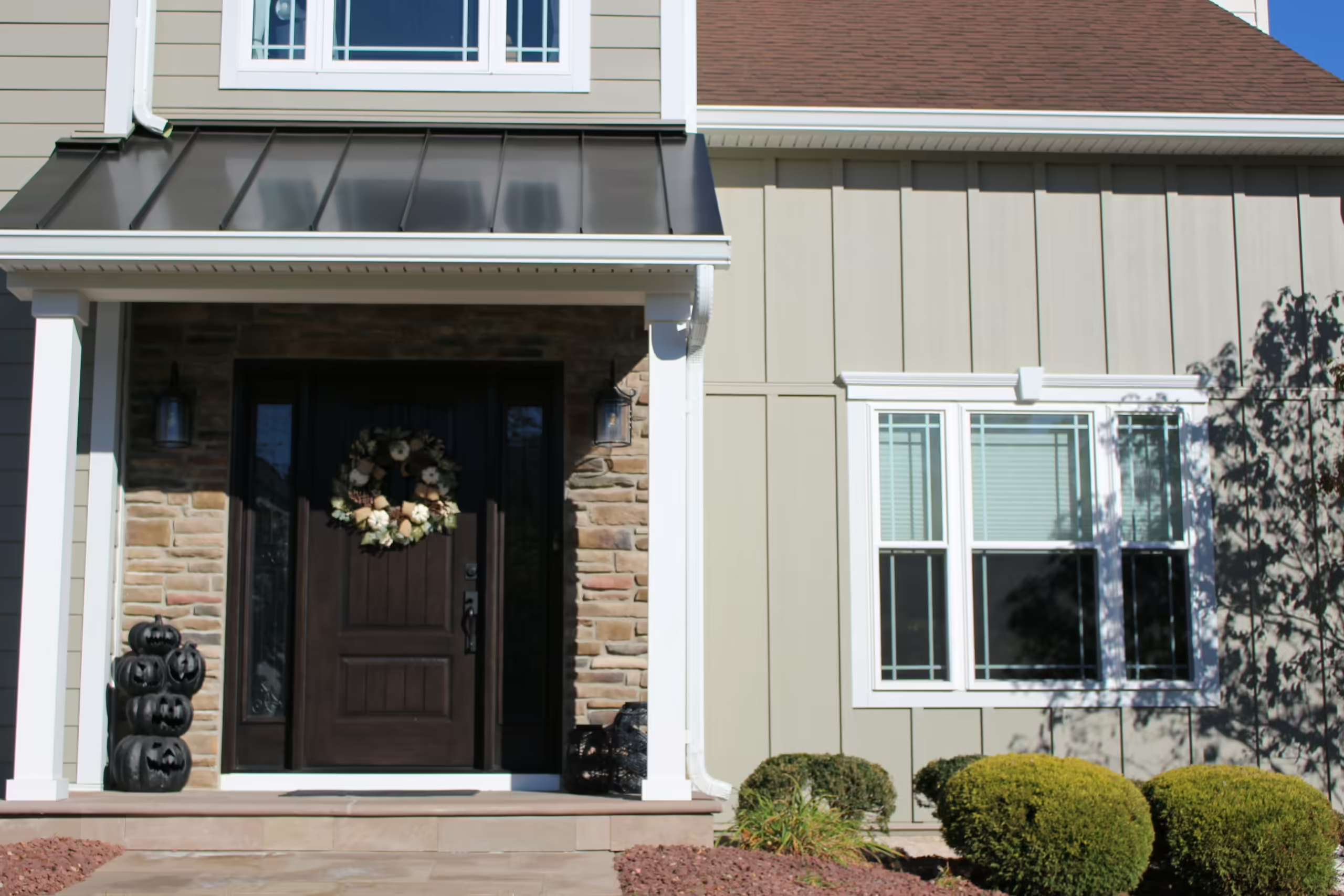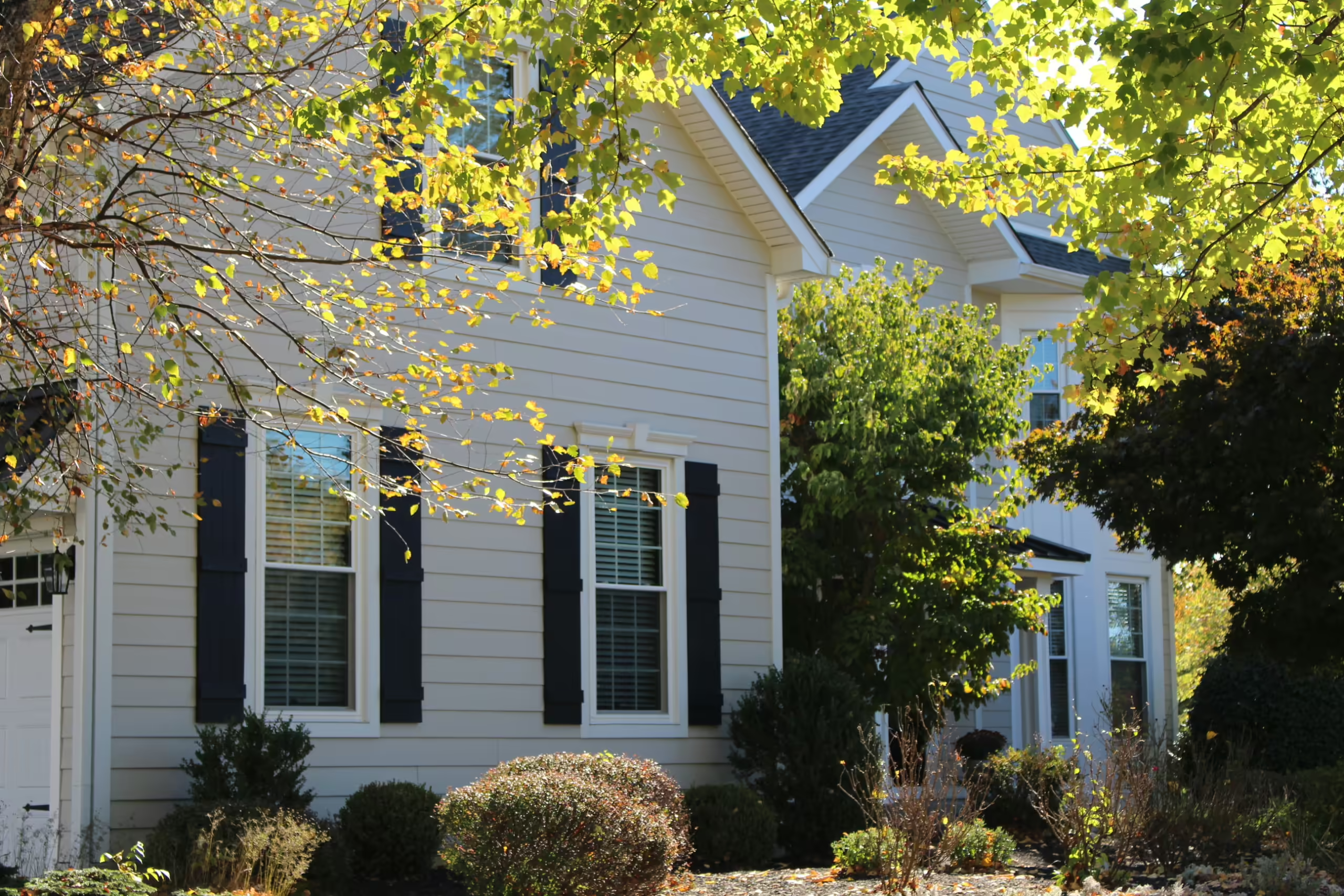Asphalt shingles remain the most popular roofing material across the nation due to their durability, cost effectiveness, and wide availability. In fact, Forbes estimates that 90% of homes feature composite asphalt shingles due to their advantages in most climates. If you’re considering a roof replacement, read below to learn more about asphalt shingles.
An Overview of Asphalt Roofing
Asphalt shingles are also known as composite shingles because they are made from an aggregation of materials. Asphalt or composite shingles can be divided into two categories: fiberglass and organic. The first option is formed from a fiberglass base mat covered with asphalt and ceramic granules, which offers a lighter, thinner material that boasts a higher fire rating and a longer warranty.
On the other hand, organic mat-based shingles are compromised from a recycled layer of felt paper, asphalt, and ceramic granules. These contain more asphalt, making them heavier and thicker with a more textured look.
What are the Different Styles or Designs of Asphalt Roofing?
Homeowners can choose between strip shingles, dimensional shingles, and designer shingles. Each selection has its own benefits, so homeowners can weigh their options with roofers depending on budget and style preferences.
Strip shingles, also referred to as 3-tab shingles, are manufactured from a single layer of asphalt and generally resemble slate. Because they are made from a single layer, they tend to weigh and cost less than other varieties.
Dimensional shingles, also known as architectural or laminate shingles, are composed of two or more layers of asphalt to offer a thicker, more textured design to mimic natural materials like wood shake. This option is regarded as more resilient and long-lasting due to the double-bonded layers of asphalt.
Designer or luxury shingles are considered the highest grade in appearance and functionality. They are manufactured to replicate a vast range of natural styles such as quarried slate roofing and wood shake, showcasing premium color variations and dimensionality. Moreover, designer shingles provide exemplary protection against the elements and require less upkeep due to their longevity.
What are the Benefits of Asphalt Roofing?
- A Variety of Color & Style Options
Homeowners can reflect their personality by choosing from an extensive array of colors, styles, and finishes. Asphalt shingles can adapt to almost any design and size, and contractors can custom cut materials to duplicate other roofing materials or match the design of your home. This can boost curb appeal if you ever choose to sell your property.
- Cost-Effective
Because of their popularity, asphalt shingles are widely available and therefore more affordable compared to other roofing materials. They’re also considered quite durable, so you can save money in the long-run by avoiding frequent repairs.
If you live in a warmer climate, consider choosing a lighter color that doesn’t trap as much heat in your home. This can help reduce energy costs because your HVAC system doesn’t have to work as hard to keep your home cool.
- Weather-Resistant
Asphalt roof shingles can protect your home from high winds, rain, snow, fire damage, and UV rays. They require minimal maintenance, and generally only need annual inspections to retain their appearance and functionality. However, if you live in an area that experiences frequent rain, it’s best to select algae-resistant shingles to prevent moisture from getting trapped underneath and subsequent algae growth.
- Absorbs Sound
Live in a busy neighborhood or near the highway? The structure and design of asphalt roofing can insulate sound well to block out noises such as stormy weather, airplanes overhead, or nearby traffic.
- Easy to Install & Repair
Contractors can install and repair asphalt roofing easily since it is widely used. This can be helpful if you decide to switch to a new company since this is not a unique, niche material. Moreover, projects can typically be completed faster.
The Best Time to Install a New Roof
Fall is the ideal time to install a new roof. Autumn brings cooler temperatures that make it easier to install materials. Hotter, more humid weather and rain can affect how long it takes for shingles to effectively seal, whereas colder winter weather can lead to shingles cracking or strips not adhering well. In fact, most roofing companies won’t install shingles below 40 degrees to avoid this risk and because it can void the warranty on the material.
Note that because fall is a popular time to schedule installations, it’s best to contact contractors in advance to prevent waiting. If you have an older roof, you don’t want to run the risk of waiting for freezing temperatures to set in before scheduling, which can lead to moisture damage from snow melt. Moisture damage can result in mold and fungal growth, poor insulation, and structural problems.
Understanding Roofing Warranties
There are three main types of roofing warranties: the manufacturer’s warranty that covers the product; a workmanship warranty from your contractor that covers installation; and an extended manufacturer’s warranty that covers the contractor workmanship and expanded product coverage.
- Manufacturer’s Warranty
Most shingles include a limited lifetime warranty, which may be transferable to the next homeowner if you decide to sell the property depending on the manufacturer. This limited protection can vary, but this typically entails covering the cost of defective shingles for the first few years at no cost and then offering prorated coverage. Most shingle manufacturers cover labor costs for installation and replacement for a period of time, but they may not cover labor costs for removal and disposal.
It’s important to note most standard manufacturer warranties only offer coverage against factory defects. In other words, a contractor’s installation mistakes or issues with other roofing components such as underlayment may not be covered. Additionally, damage caused by moisture like mold, structural issues to your home, or damage caused by installing equipment like satellite dishes are generally not covered.
- Contractor Workmanship Warranties
Contractor workmanship warranties protect you against premature failures due to improper installation. Warranties typically cover labor and materials costs needed to make repairs as well as damages incurred. However, this excludes any sort of damage or failure that isn’t related to workmanship such as inclement weather.
Warranty lengths vary, but some contractors offer lifetime coverage.
- Extended Manufacturer Warranties
An extended manufacturer warranty is considered comprehensive coverage. This optional package offers homeowners a peace of mind if disaster were to strike down the line such as a heavy storm.
Most extended warranties offer clients several advantages compared to other options such as:
- Coverage for all roofing components such as decking, fasteners, and flashing.
- Full coverage for defective materials that can be extended for decades
- Workmanship coverage against faulty installation techniques, which includes labor, removal, and disposal costs
Whichever warranty you choose, make certain to have your shingles inspected annually so problems can be reported as soon as possible.
When you need a reliable contractor, turn to Preferred Home Improvement in Willow, PA. For over 35 years, this family-owned roofing contractor has served high-quality renovation services to the local region. Specialized in roofing, siding, windows, and doors, they offer superior, affordable services to each client. They also provide home additions to complete your remodeling vision such as adding decks or expanding the living space for entertainment purposes. Call (215) 366-5813 or visit their website to view their services.



